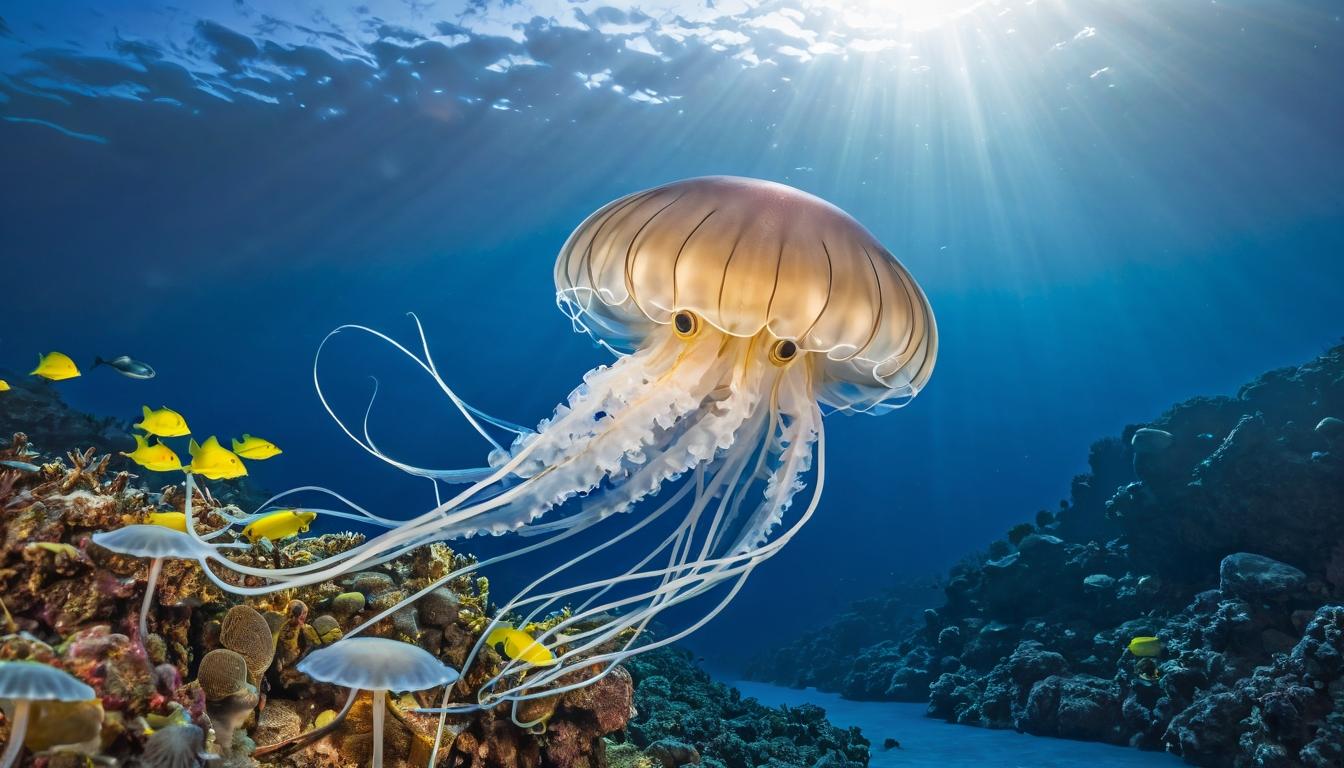Beneath the ocean's shimmering surface exists a world so alien, so utterly bizarre, that it makes science fiction look tame. The octopus, with its three hearts, blue blood, and distributed intelligence, represents just the tip of the evolutionary iceberg. These cephalopod geniuses can solve complex puzzles, open jars with their tentacles, and even use coconut shells as portable armor—a behavior once thought exclusive to mammals. Their skin contains chromatophores that allow instant camouflage, shifting patterns and colors with such precision they can mimic specific textures like coral or sand.
While octopuses capture our imagination, the ocean holds deeper secrets. The immortal jellyfish, Turritopsis dohrnii, can literally reverse its aging process when injured or stressed, transforming from an adult medusa back to its juvenile polyp stage. This biological reset button makes it theoretically immortal, challenging everything we know about life and death. Scientists are studying this creature in hopes of unlocking breakthroughs in human longevity and regenerative medicine.
Then there's the mysterious bloop—a ultra-low frequency sound detected in 1997 that was so powerful it was heard by sensors over 3,000 miles apart. Initially thought to be some colossal sea monster, researchers eventually determined it was the sound of Antarctic ice calving. But the romance of the unknown persists, reminding us how much of our own planet remains unexplored and unexplained.
The ocean floor itself holds wonders that defy imagination. Hydrothermal vents, often called 'black smokers,' spew superheated water rich in minerals, creating oases of life in the deep dark. Here, giant tube worms without mouths or digestive systems thrive through symbiotic relationships with bacteria that convert toxic chemicals into energy. Entire ecosystems exist completely independent of sunlight, powered instead by chemosynthesis—a concept that expands our understanding of where life can exist, both on Earth and potentially elsewhere in the universe.
Even the most familiar marine creatures harbor secrets. Dolphins sleep with one eye open, literally shutting down one hemisphere of their brain at a time to maintain consciousness for breathing and watching for predators. Some species of shrimp communicate by creating imploding bubbles that generate flashes of light hotter than the sun's surface, albeit for nanoseconds. The pistol shrimp's snapping claw creates such intense pressure waves it can stun or kill small fish—and the resulting cavitation bubble momentarily reaches temperatures comparable to the sun's surface.
Perhaps most astonishing is the recent discovery of underwater rivers and lakes—bodies of saltwater so dense they form distinct layers with their own shores and waves. These hypersaline pools create deadly traps for unwary creatures, preserving their bodies in perfect condition for thousands of years. Scientists study these natural time capsules to understand ancient marine environments and evolutionary history.
The ocean continues to surprise us with new discoveries annually. Recently, researchers identified a species of comb jelly that rebuilds its entire nervous system every twelve days, challenging our understanding of memory and identity. Another team discovered fish that communicate through flatulence—herring literally talk to each other by releasing air from their swim bladders, creating high-frequency sounds that predators can't hear.
These marine mysteries remind us that wonder isn't confined to distant galaxies or quantum physics. It pulses through the waters that cover 71% of our planet, waiting for curious minds to dive deeper. Every expedition reveals new questions, proving that the final frontier might not be space, but the vast, unexplored world beneath the waves.
The secret lives of octopuses and other mind-bending ocean mysteries

